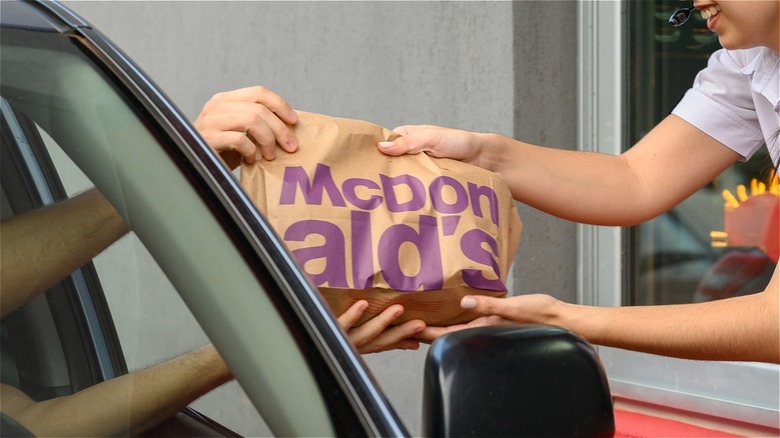New Study Reveals How Much McDonald's Workers Actually Make
Sometimes lost in the recent discussions about labor shortages and working conditions in the fast food industry is what workers are actually being paid, especially concerning amidst rising costs of living. Enter the Economic Policy Institute, who has now completed their Company Wage Tracker project, aimed at compiling data showing how 66 big name retail and food industry companies pay workers less than $20 per hour. The project then breaks down the data into more discrete pay brackets to show the discrepancies between wages, from executive level to front line workers.
According to the EPI's findings, the revenue of McDonald's is around $19.2 billion, and the company pays its CEO $3.16 million while just 1% of its 670,760 workers earn at least $20 per hour. Or, to put it another way, 99% make less than $20 per hour. Similarly, only 1% makes between $18 and $20 per hour. According to the EPI, a large share of 89% make less than the much desired $15 an hour with even 23% receiving less than $10 an hour, 35% earning between $10 and $12 an hour, and 22% receiving between $12 and $14 per hour. The final 9% presumably receive something around $14.25 or $14.50 each hour.
McDonald's denied these findings in a statement made to Business Insider, saying EPI's report "relies on a small sample size and dated information." The company explained that it had raised its worker salaries in 2021 by an average of 10%. This, however, only affected the restaurants the company directly owns, and are not franchised, which is a minuscule portion (per CNBC). The statement from McDonald's did claim, though, that their franchises have instituted raises too.
Who pays workers remains a thorny issue
The reason that the Company Wage Tracker's evidence that almost 9 out of 10 McDonald's workers make less than $15 per hour is important is because it highlights why workers have fought so hard for a $15 minimum wage. In May, Vice reported how McDonald's cashiers were readying themselves to strike for that standard. The argument being that this higher pay would help alleviate the labor shortage and provide a better living wage.
In April 2021, Newsweek carried the story of how even McDonald's tried to calm the fears of other companies by saying that a $15 minimum wage would not destroy business. But yet, on April 22, 2022, McDonald's won their case against Fight for $15, arguing that the corporate company is not responsible for how franchises pay or discipline employees. As Reuters reported, Fight for $15 tried to argue the case that McDonald's was a joint employer, which would make them liable for how their franchises fired their workers in retaliation for protesting for a higher minimum wage. The U.S. Court of Appeals for the D.C. Circuit rejected this. And because the company can remain separate from the direct employers of McDonald's workers, the leverage to enact a cross the board pay rise is not as feasible.
That said, the company could encourage franchises to pay their workers more. For example, instead of using the tens of millions in PPP loans for paying HQ rent during the pandemic (per The Counter), they could have used that money to supplement worker paychecks.

